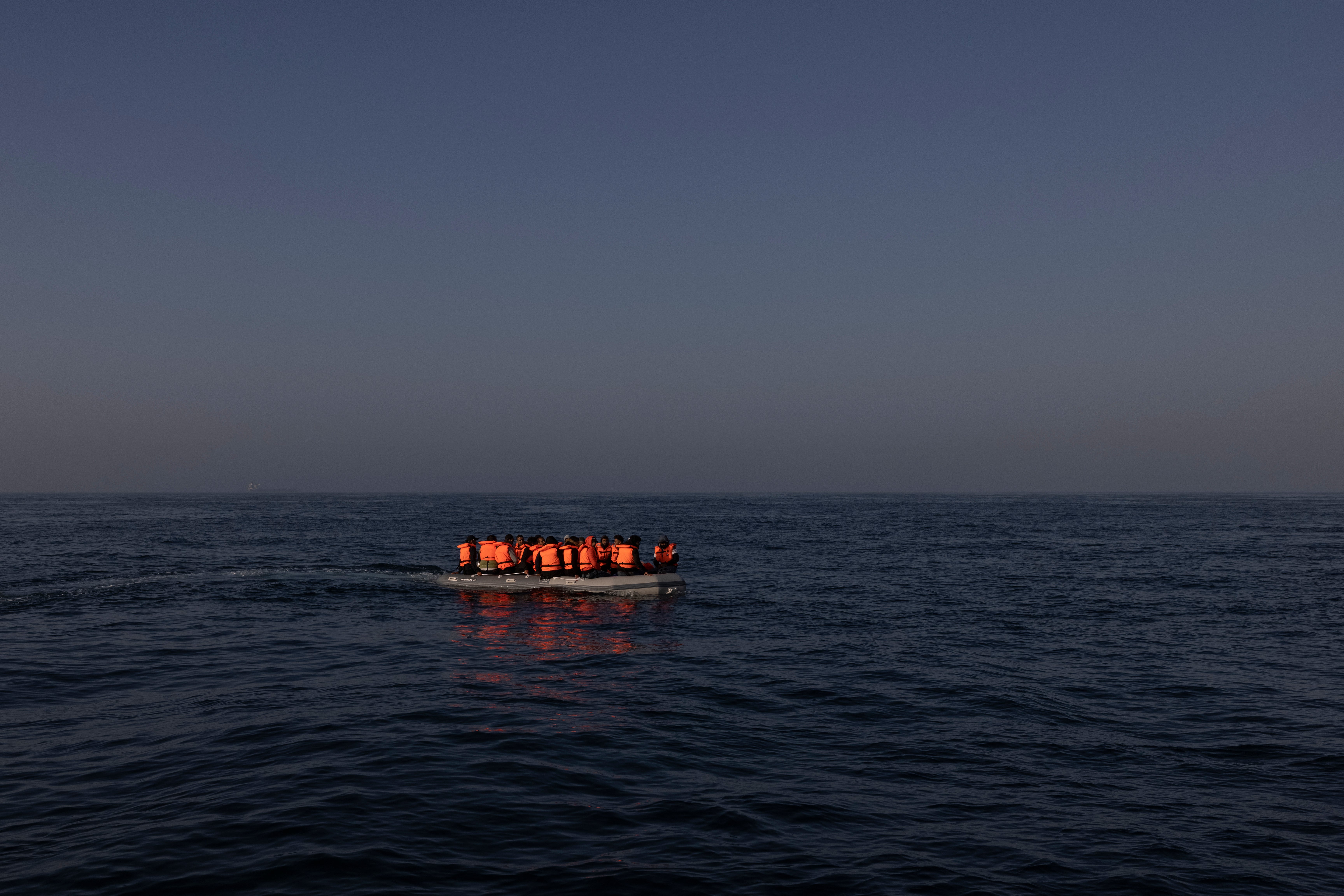It is about two hundred years since the end of the brutal press gangs that used to patrol the ports, and the crown allowed its right to seize men of seafaring experience for the royal navy to lapse.
Yet it is now the royal navy itself, and its men and women of fine seafaring experience, that is being press-ganged by Boris Johnson into rescuing his floundering career. It is, in effect, being pressed into service in a mission to distribute much-needed red meat to disgruntled Conservative backbenchers.
Dutiful and patriotic as the admirals undoubtedly are, their new mission in the English Channel must be an unwelcome late Christmas present. Acting in support of the civil authorities, as during the Covid crisis and vaccine rollout, is a call that the armed forces invariably answer with alacrity and a happy heart. Trying to solve the small boats refugee crisis is a rather different kind of challenge.
So the royal navy has its work cut out with an impossible, ill-defined task. The idea is that a rear admiral will be placed in command of the marine operations of the UK Border Force, HM Coastguard, fisheries protection vessels and HM Customs and Excise to keep track of and “intercept” those crossing the Channel (the RNLI as a private charity remains outside the new armada).
The chief of the defence staff, Admiral Sir Antony Radakin, is reportedly confident the scheme will ensure “no one gets to the UK on their own terms”, with people escorted to new “migrant hubs” on land for processing.
Easier said than done, must be the response to such a scheme. There is nothing in this new plan, beyond possibly more expert coordination and direction, that will alter the facts at sea. There is nothing that the royal navy can direct Border Force vessels to do that they cannot already do now, lawfully.
When the Nationality and Borders Bill becomes law in a few months, the domestic legal framework of the refugee crisis will alter; but it cannot override the UK’s international treaty obligations, such as the 1951 United Nations Convention on Refugees. That means that there is still no such thing as an “illegal migrant” when the absolute, unconditional, unfettered right to claim asylum is protected under international law, as it is now. The international law of the sea also places an obligation on all those at sea to help those in distress.
“Interception”, then, of migrants is happening now, and the real work is in processing claims and dealing with those whose claims for asylum are evidently weak or unfounded. That is not going to be eased by getting the royal navy involved. The navy isn’t going to be in a position to emulate its Australian counterpart’s ability to operate in international waters because there are none in the narrow English Channel, and France has shown no sign of taking refugees back or allowing Her Majesty’s ships to roam freely in French territorial waters.
To keep up to speed with all the latest opinions and comment, sign up to our free weekly Voices Dispatches newsletter by clicking here
The latest rumour is that Priti Patel has hatched a plan to transport asylum seekers to Africa. Of the supposed “favoured destinations’’, the depleted royal navy cannot be expected to take desperate refugees to Ghana, which is too far away, or Rwanda, which is landlocked.
It seems to have been forgotten by the prime minister and his home secretary that the royal navy was called in to Channel patrols as recently as 2019, but HMS Enterprise and HMS Mersey did not intercept a single boat. The cost to the Home Office was some £780,000, and it is still unclear whether royal navy vessels will be involved in the latest operation, or whether naval personnel will be kept out of what could easily turn into tragic episodes with loss of life if force is required – as suggested by the government’s tough rhetoric and dramatic announcement.
With luck, as with so many of the prime minister’s eye-catching initiatives, there will be less to the proposal than meets the eye. For now, the weather will mean far fewer boats making the perilous journey, so there will be time for the mission to be properly defined and planned for. It is, though, unlikely to do much more than redirect the flow of people, even if it succeeds, just as previous success in reducing smuggling in vehicles pushed migrants into the dinghies.
The royal navy does many things very well, but it can’t sort out the government’s asylum policy, and neither can it – nor should it – attempt to refloat Mr Johnson’s sinking ship.







Join our commenting forum
Join thought-provoking conversations, follow other Independent readers and see their replies
Comments